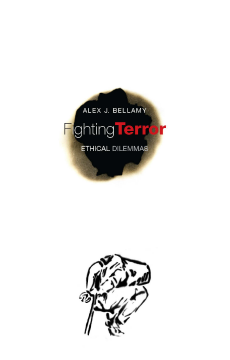
Additional Information
Book Details
Abstract
Fighting Terror analyses the ethical dilemmas that confront everyone in the war on terror. Arguing that this is as much a war of ideas as it is a military struggle, Alex Bellamy argues that fighting morally is essential in distancing the terrorized from the terrorists.
The book starts by setting out the case for thinking ethically about the war on terror and demonstrates the immorality of terrorism. Covering everything from torture to bombing, assassination to post-war reconstruction, Bellamy uses a series of fascinating case studies to examine how morally terror is being fought across the world. Though, he claims, there is a good case for combating terrorism, the way this is being done is ethically deeply troubling. Fighting Terror makes a powerful and controversial argument for bringing ethics and morality back in to the way we think about terrorism.
Alex J. Bellamy is Professor of International Relations at The University of Queensland. His research focuses on the normative aspects of the use of military force, in particular the ethics and laws of war, peace operations and humanitarian intervention.
'Here is a book many of us have been awaiting - a sophisticated reading of the just war tradition as it speaks to the post 9/11 international order. Bellamy's understanding of just war as a tradition of thought means that his critical assessment of American efforts to counter terrorism carries great weight. This is a book which will benefit students and scholars alike'
Tony Lang, University of St Andrews
Table of Contents
| Section Title | Page | Action | Price |
|---|---|---|---|
| Preface | vii | ||
| Introduction | 1 | ||
| 1 Ethics and war: an oxymoron? | 5 | ||
| Realism | 5 | ||
| Pacifism | 8 | ||
| Neoconservatism | 10 | ||
| Reciprocity | 13 | ||
| The value of ethics | 17 | ||
| What type of ethics? | 20 | ||
| Conclusion | 27 | ||
| 2 What’s wrong with terrorism? | 28 | ||
| What is terrorism? | 30 | ||
| A moral definition of terrorism | 38 | ||
| Justifications of terrorism | 41 | ||
| Conclusion | 49 | ||
| 3 A just war on terror? | 50 | ||
| The jus ad bellum test | 52 | ||
| A just cause? | 55 | ||
| A proportionate war? | 68 | ||
| Conclusion | 70 | ||
| 4 Is pre-emption legitimate? | 72 | ||
| Self-defence in the just war tradition | 73 | ||
| Pre-empting terrorism? | 81 | ||
| Yemen | 87 | ||
| Iraq | 92 | ||
| Conclusion | 97 | ||
| 5 May we torture ticking-bomb terrorists? | 99 | ||
| The legal and moral prohibition | 103 | ||
| The case for torture | 109 | ||
| The ticking-bomb terrorist | 119 | ||
| Conclusion | 127 | ||
| 6 What comes next? | 128 | ||
| The minimalist approach | 129 | ||
| The maximalist approach | 136 | ||
| Just peace in the war on terror | 141 | ||
| Conclusion | 150 | ||
| Notes | 153 | ||
| Introduction and chapter 1\r | 153 | ||
| Chapter 2\r | 155 | ||
| Chapter 3\r | 157 | ||
| Chapter 4 | 159 | ||
| Chapter 5 | 164 | ||
| Chapter 6 | 167 | ||
| Index | 170 |
